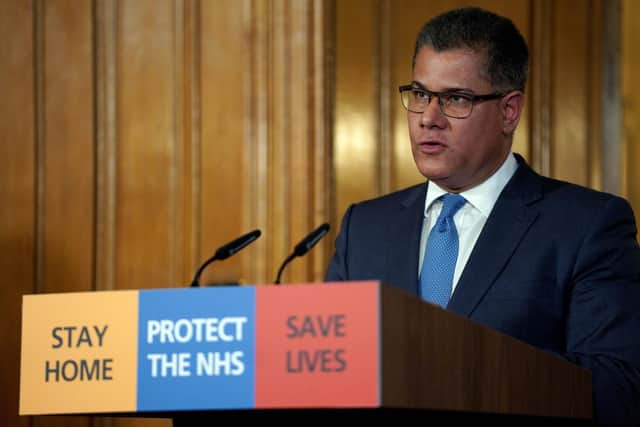Business Secretary announces new measures aimed at speeding up production of hand sanitiser and helping businesses to 'bounce back'
and live on Freeview channel 276
Leading the Government’s daily briefing, Business Secretary Alok Sharma confirmed changes would be made to insolvency rules in order to allow businesses ‘greater flexibility’ as they face the current crisis.
He said: "It is crucial when the crisis passes, as it will, we are ready to bounce back...and emerge intact the other side of the Covid-19 pandemic".
Advertisement
Hide AdAdvertisement
Hide AdMr Sharma added: "These measures will give those firms extra time and space to weather the storm and be ready when the crisis ends whilst ensuring creditors get the best return possible in the circumstances.”


The Business Secretary also said that employees who are unable to take their annual leave as a result of the pandemic would be able to carry it over for two years.
Mr Sharma said the government was set to introduce the temporary suspension of wrongful trading provisions for company directors in a bid to remove the threat of personal liability during the crisis.
This will apply retrospectively from March 1.
Mr Sharma said the Government would also remove ‘red tape’ to help firms produce hand sanitiser quicker, and have it on supermarket shelves within a ‘matter of days’.
Advertisement
Hide AdAdvertisement
Hide AdNational Medical Director of NHS England, Professor Stephen Powis, also addressed the nation at the briefing.
He said ‘now was not the time to be complacent,’ before adding that it is possible to stop this virus providing we reduce its transmission.
Prof Powis said we will have ‘done well’ as a nation if we can keep the number of coronavirus deaths to under 20,000.
Commenting on bed capacity, Prof Powis said the NHS was working ‘hard’ to increase the number of beds.
Advertisement
Hide AdAdvertisement
Hide AdHe said: "We are not at capacity yet within London, but beds are being opened all the time to increase that extra surge capacity.
"In the first instance we are using theatres and recovery areas; those are areas in hospitals where anaesthetic machines, ventilators, are already used for surgery and can be readily adapted to take critically ill patients."
Prof Powis added: "That's almost doubling the capacity that we have already. We are not using it at the moment, but clearly the number of patients is increasing each day."